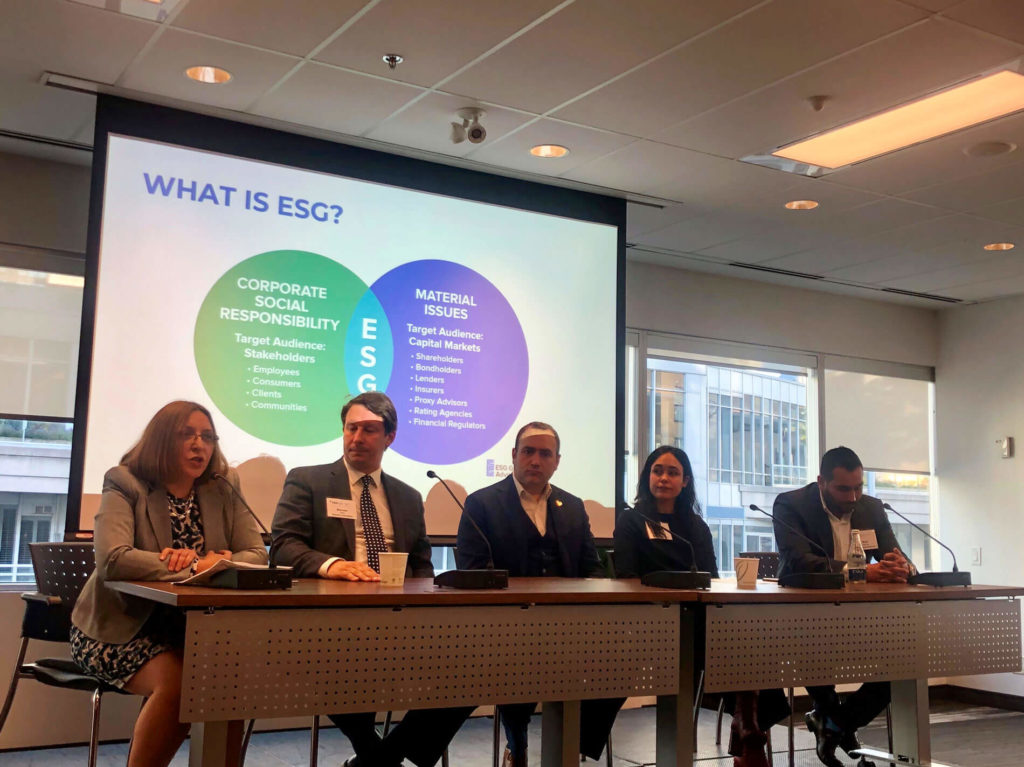Office
First Canadian Place
100 King Street West
Suite 5600
Toronto, Ontario
M5X 1C9
Canada

Updated: Oct 31, 2019
A year after the legalization of recreational cannabis, there has been much discussion about cannabis investment risk and opportunity, some discussion about cannabis sustainability, and less discussion bringing these topics together to explore material ESG factors in cannabis and the link to access to capital.
To help bridge that gap, the Canadian Coalition for Good Governance (CCGG), CPA Canada and ESG Global Advisors hosted a breakfast panel discussing the cannabis industry and the unique ESG challenges and opportunities it faces. ESG Global Advisors’ Michelle de Cordova moderated the panel, which included:

As cannabis companies grow, strong corporate governance will be key to attracting institutional investment. When investors start integrating ESG, they typically start with the G (governance) and so enhancing basic corporate governance is a must. A parallel can be drawn to the tech industry in that boards will and should look different during the start-up period of rapid growth. As cannabis companies shift to a more stable phase with institutional investment, shifts in board composition and practices are also required.
Cannabis ESG is not just about mitigating risk: there are also opportunities. For example, energy consumption and product packaging are material environmental risks but also offer opportunities to reduce costs or increase revenues. As more research on the risks and medical benefits of cannabis is produced, material ESG factors will evolve.
It is important for cannabis companies to get started on ESG, even while facing the many challenges that come with being part of a new and growing industry. Cannabis companies will find that institutional investors have different expectations than retail investors. Institutional investors are increasingly sophisticated in their stewardship and active ownership activities. They will be exercising their proxy voting rights and have bright line expectations on corporate governance. They will be engaging with their portfolio companies and asking questions about how the company is positioned to manage environmental and social risks. The cannabis industry is new, it faces a considerable amount of public scrutiny and perception of its corporate governance practices is not favorable. These factors will make cannabis companies a target for institutional investor engagement.
Boards of cannabis companies should initiate a dialogue on ESG with investors as soon as possible. Investors aren’t necessarily looking for immediate perfection, simply an indication that the company and board have thought about ESG factors and are working on oversight and management of material ESG risks and opportunities. The goal of engagement is value creation and companies can benefit from starting a dialogue with their investors to help build trust and learn about their ESG priorities.
One of the most important things a company can do is to be proactive and take control of its ESG narrative. ESG Global Advisors’ recent piece “Cultivating ESG in Cannabis: Can ESG Help Grow Institutional Investment?” offers a brief introduction to ESG and the implications for cannabis companies and contains a list of questions that cannabis board directors can use to open the discussion on developing an ESG strategy.